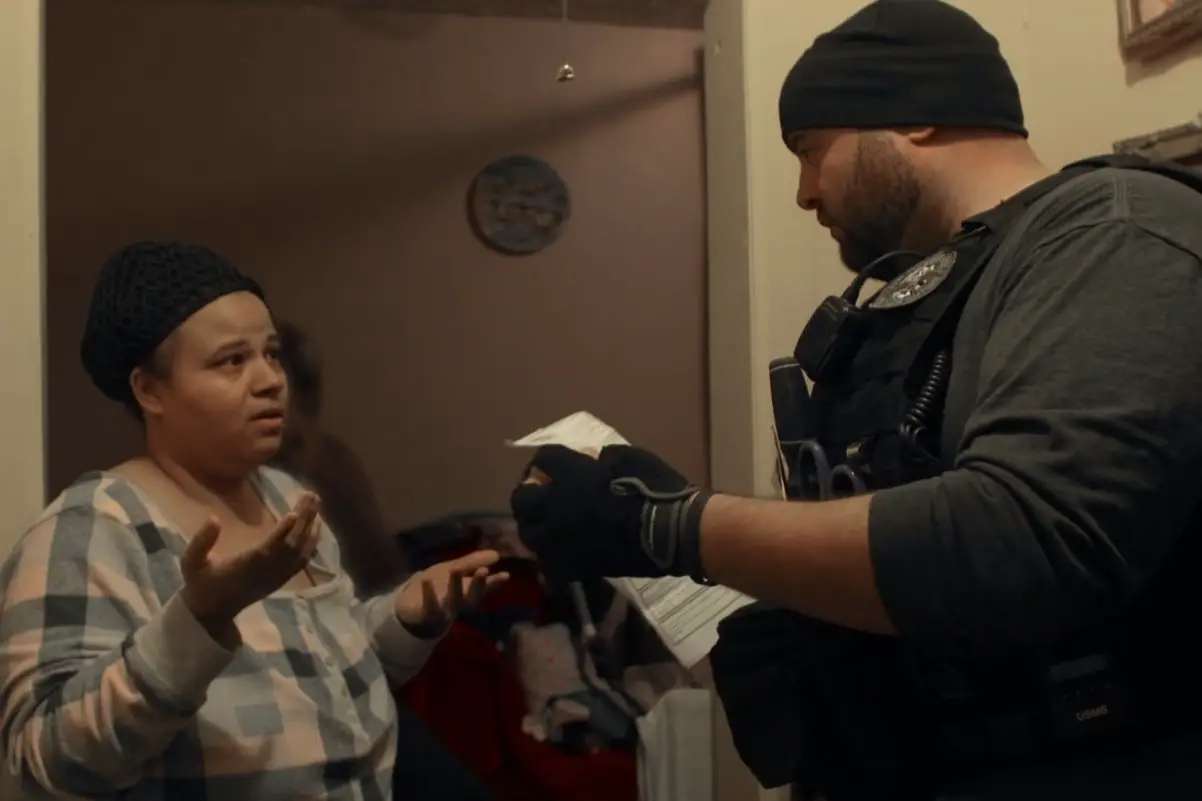Immigration has been a prevalent political and human rights issue in America for years. Since Donald Trump infamously announced his plans to build a wall along the Mexico-United States border during his 2016 presidential campaign, the topics of illegal immigration and deportation have been widely debated. With plenty of promises from the Trump administration, such as limiting legal immigration, banning Muslims from entering the US and tripling the number of Immigration and Customs Enforcement (ICE) agents, the foreshadowing has definitely been lingering in the air.
Now we’re seeing the ramifications of these promises. Over the past few months, issues regarding ICE, the ethicality of deportation and other problems stemming from these new regulations are at the forefront of the news and media.
Although you might think you’ve seen and heard everything regarding the immigration issue, Netflix decided to take an inside look into the everyday lives of the people who are directly affected by these hardline policies.
“Immigration Nation” made its debut on Netflix in early August. Its coverage ranges from the spring of 2017 to the winter of 2019 when the government was starting to put new laws into place. The six-episode docuseries shows us what isn’t always prevalent in the news — first-hand accounts from immigrants, refugees and government personnel at the center of the controversy.
“Immigration Nation” directors Shaul Shwarz and Christina Clusiau have been interested in these issues long before the project was approved.
“I actually was interested in immigrants that came to this country,” Shwarz said about the initial idea for the docuseries. “I thought ICE is kind of a fascinating asset to cover… even in the Obama days, when I think there was less attention.”
The show captures viewers’ attention with an enthralling first episode called “Installing Fear.” The episode opens with ICE agents knocking on an apartment door. The woman who answers, Anna, is confused when agents ask if they can come inside and “talk” to her. As a handful of officers shuffle inside the small apartment, one agent asks how many people are living there, to which Anna answers “three adults and one baby.”
Chaos ensues for a few moments, and while officers detain a man and take him out of the apartment, one agent stays to explain the situation to a frustrated and scared Anna. “He has a criminal warrant,” the agent says. “He was deported before. It’s actually a federal offense to come back in the country.”
Anna immediately asks to see the warrant, but the agent claims he’s not obligated to show it to her. The officers leave, and the man is taken into custody. With tones of confusion, disorder and questionable ethics, the beginning scene of the show lays the framework for what you’ll see throughout the series.
In the first episode, the lens is cast on ICE agents as you get to see their perspective on newer strict deportation policies and how the public views their jobs. ICE Fugitive Operations agent Judy (whose last name is not disclosed due to privacy reasons) believes that officers like her get a bad rep.
“We constantly look like we’re the bad guys when all we’re doing is enforcing the laws and doing our job,” Judy says. “It gets to me sometimes.”
Due to the controversial nature of the docuseries, “Immigration Nation” was met with mixed reactions from the public, but it also got the attention of the government.
When you see all the horrific things shown in this series, it’s no surprise there was significant backlash from an administration that wants you to believe these new immigration policies are making the country a better place.
In fact, federal officials even tried to spin the narrative of the show, allegedly attempting to make directors cut out certain parts of the documentary. Several scenes are shown where officers are participating in unethical and even illegal activities, such as mocking people who are detained, lying to get into a house and picking a lock to gain entry into a building — it’s no wonder the government doesn’t want the public to see this show.
Officials also reportedly tried to delay the release of the docuseries. In a New York Times investigative piece about the show, reporters interviewed Shwarz and Clusiau, who disclosed some of the government involvement.
According to the article, “The administration fought mightily to keep it from being released until after the 2020 election.” This is because many of the policies Trump is implementing are shown in a negative light. In addition to trying to keep the piece out of the public eye, they also wanted the tone of the New York Times article shifted in their favor, claiming the article had several mischaracterizations in it.
In a Los Angeles Times piece, Shwarz said, “There was a long, unfortunate process of them trying to shift the editorial and doing it in what we saw as a very bullying way. And I’m sorry to say it, but I don’t think that’s a surprise anymore about this administration. We’ve seen it in other places.”
It’s clear while watching this docuseries that the immigration system is severely flawed, and it won’t get any better until we wake up and see what actually happens to people and their families when the laws are tightened.
“Immigration Nation” is a politically charged show with questions about ethicality, racism and human rights, but despite the complex and highly objective concepts in the series, it can be summed up in one sentence. The show’s trailer has a clip of a Hispanic man sitting on a couch. The man looks up somberly, then says in Spanish, “I think the American dream sometimes becomes a nightmare.”

















